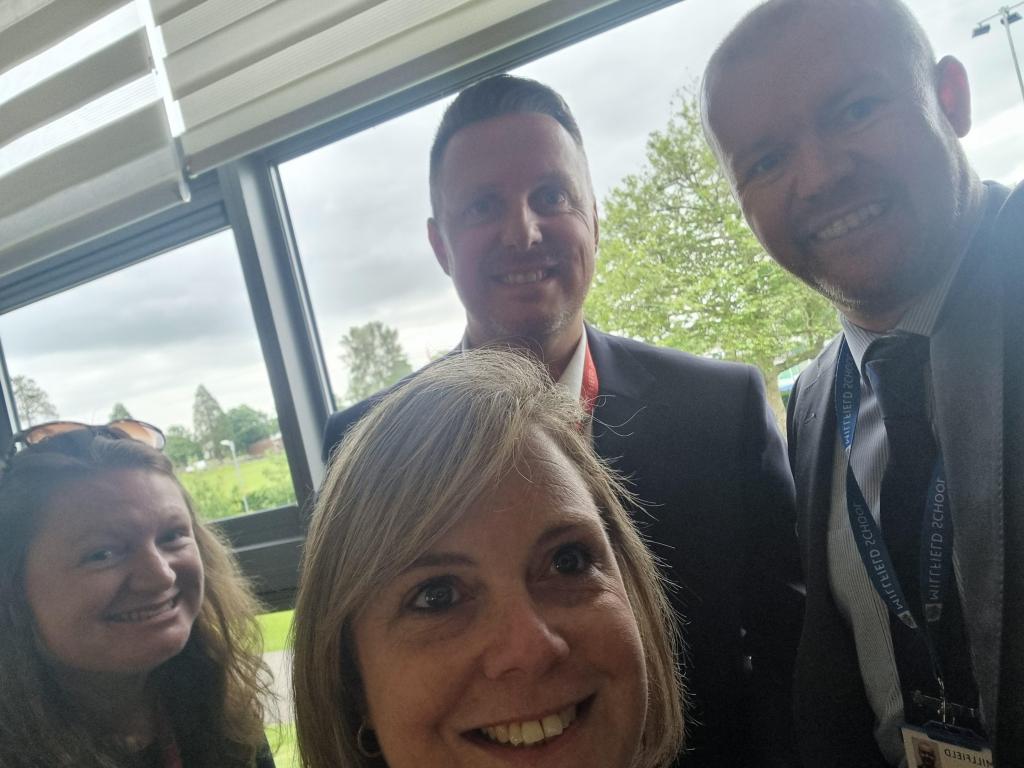
During last week I had the pleasure of entertaining my colleague from the Digital Futures Group (DFG) Gemma Gwilliam along with Nick Morley and Emma Watson to Millfield to talk about esports in schools. I am very positive about the potential for esports in schools so I enjoyed yet another opportunity to share the Millfield journey and to encourage other schools to consider how they might implement esports.
Now as a teacher, back in the early 2000’s I started up a computer gaming club using Xbox devices, before moving to getting games installed on the computers in one IT Lab, then in my next school I had a PlayStation 2 in my desk drawer attached to the classroom projector, before again progressing to installing games on the PCs. This was all before esports was really a thing. At that point I saw how gaming engaged students and the advantages in relation to behaviour and attitude to school. Looking at esports now however I see that there were also many other advantages which I hadn’t seen back then such as how students developed communication skills especially in collaborative games, the development of leadership skills, problem solving and strategy, resilience and many other soft skills. Looking at esports, yes becoming an esports professional can be lucrative however very few students will ever achieve this, but the skills they can develop along the way have applications across different careers and across life. Its very much the same as students playing rugby or football; few will ever achieve international level playing, however for all involved, including those that don’t, the act of involvement will develop many beneficial and useful life skills. It is also worth noting that many students are already really engaged in computer games, and therefore through esports we can hopefully harness their excitement and engagement while delivering positive learning experiences which can help the students to develop; Its about teaching them where they are.
During the visit I shared Millfield’s journey, acknowledging that things have progressed slower than I would have liked, however it is important to note that progress has definitely been made and we have some exciting plans for the year ahead. The Millfield journey began back in 2018/19 when we first looked at esports and looked at upgrading two of our IT labs, at a time when the labs needed upgrading anyway. Feedback from students was very positive about our idea of introducing esports, with 88% of students replying to a survey indicating they were positive about the school introducing esports. As such when the end of the academic year arrived we replaced the PCs in the IT labs as planned, however increased the specification slightly to support esports, but also to support other applications which would benefit from the additional RAM and a more powerful graphic card. At the time we choose to have the uprated hardware housed in normal PC chassis such that they looked no different to PCs across the school or in the IT labs we didn’t upgrade. This was to avoid any issues with students preferring to be taught in the two upgraded classrooms rather than those which hadn’t, as the rooms all looked no different to each other; You don’t need to buy gaming machines with neon lights and see through cases if you don’t want to or if it doesn’t suit your schools needs. 2019/20 saw our first involvement in the British Esports Federation, or Association as it was then, school Champs tournament with our senior school students before we piloted an independent schools competition the following year. After this we added esports to our activities programme, we then introduced a girls only group to try and encourage more of our girls to get involved, then introducing esports as an activity at our prep school. During the course of this year we have added F1 Sim racing to the roster of games, which previously had largely focussing on Rocket League given its age rating and ease of play, and Overwatch for the senior school students. So steadily over the years we have been refining and developing our offering.
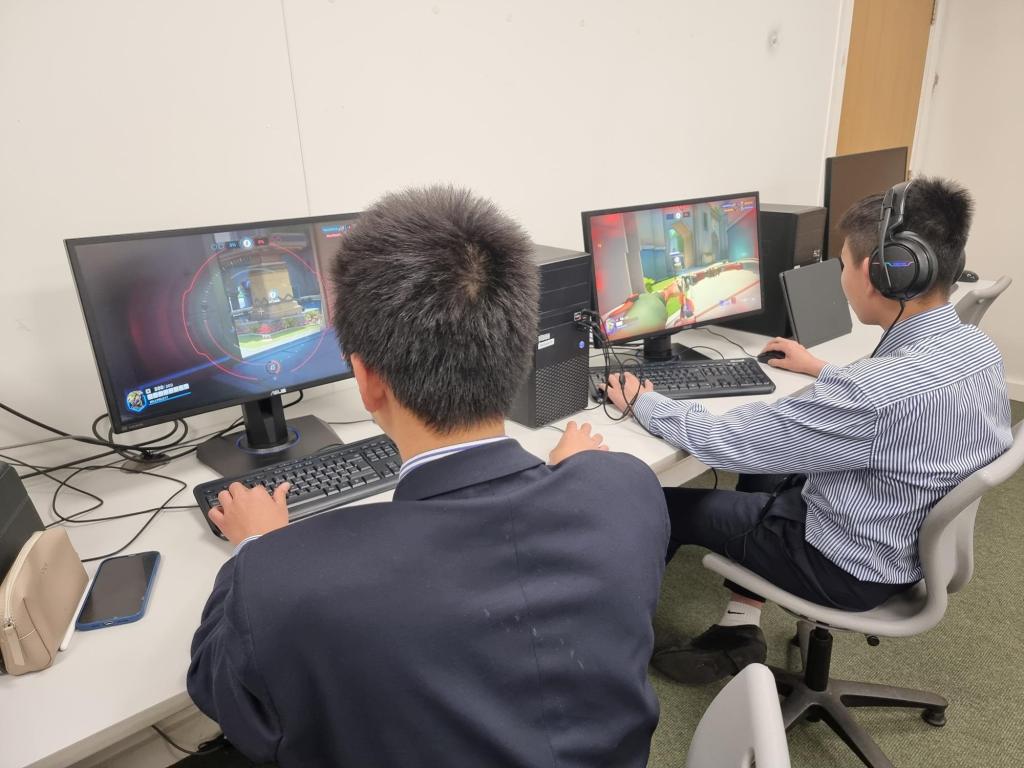
I also shared some advice with our visitors while they were at Millfield, based on our experiences. I stressed the importance of differentiating between gaming and competitive esports; this is important for students, staff and parents to understand that esports is competitive, it is about teamwork based games, communication, etc, rather than the solitary gaming which parents in particular might be concerned about. I also included the need to factor the costs of headsets and controllers in as these are largely consumable items, plus the need to be aware of game updates as these can get quite large and once multiplied across a number of machines can have an impact on the schools bandwidth, or may take some time to get installed, which is the last thing you want when you have a group of students waiting to get playing. I also acknowledged the importance of using students own experience in any esports provision as the students are often more aware of the controls, settings, etc, of games than staff and therefore we should seek to harness this knowledge and experience. My final points related to the fact that you can start small, and don’t need labs full of neon gaming computers and fancy gaming keyboard, mice and chairs; A few average i5 PCs with 8Gb of Ram would be sufficient to run Rocket League just to get you started and from there you can progress. Also, its about having some fun, both staff and students.
Looking to the future and Millfield, I am definitely eager to continue building on our esports provision and also supporting and encouraging other schools to get involved. So, within the school we will hopefully look towards becoming more competitive in the Champs tournament, plus possibly trying to arrange a smaller inter schools competition with other school. Having missed the qualifiers for the Williams F1 sim racing competition this year, hopefully next year we will be able to put some players forward and get involved. It would also be nice to harness some of the opportunities around esports such as getting students shout casting on matches, developing marketing materials, organising events, etc, where this might link well with teaching departments such as English, media, business, etc. We would also like to look to deliver an esports camp possibly during the summer using the BTec qualifications as a blueprint, albeit any camp would only be a taster given the short duration of any such camp.
In a world where technology is moving at great pace, it will be the human capabilities, which AI for example cannot deliver, which we will need to focus on. Leadership, communication, collaboration, resilience, self motivation, continual improvement, emotional intelligence and more. All of these can be developed and encouraged through esports, plus its something many students are already interested and engaged in so. To me that seems like a win, win!


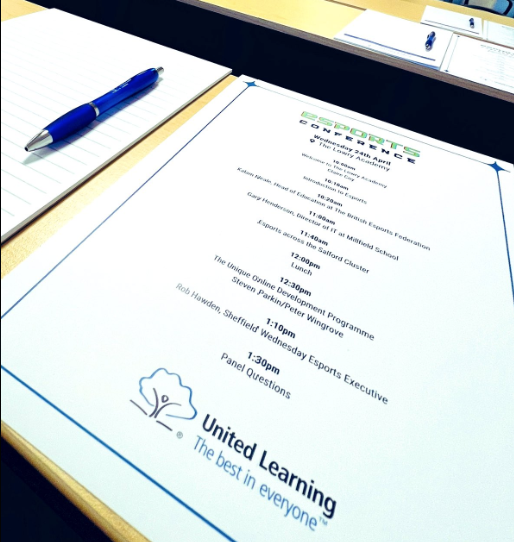
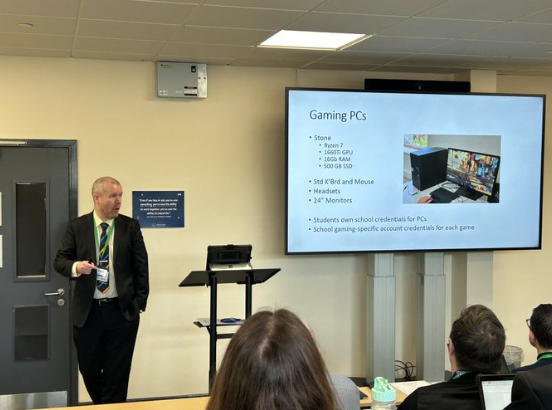

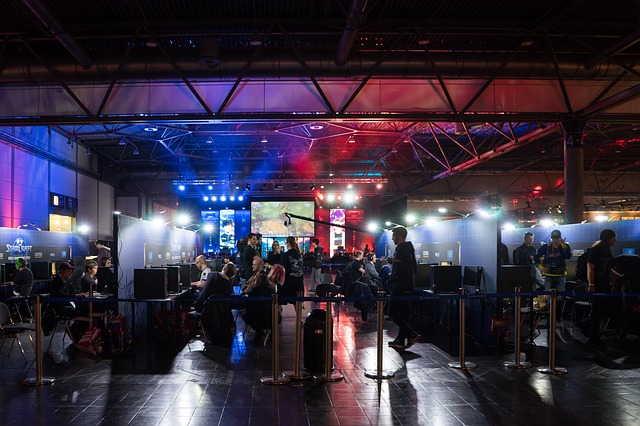 Yesterday I had a meeting with a representative from the British esports Association in relation to esports competitions within schools. As with a lot of technology views are rather polarized, and none more polarized than the views on esports. Either esports is a window into the future and future big business or it is addictive computer gaming and bad for users ability to focus and communicate.
Yesterday I had a meeting with a representative from the British esports Association in relation to esports competitions within schools. As with a lot of technology views are rather polarized, and none more polarized than the views on esports. Either esports is a window into the future and future big business or it is addictive computer gaming and bad for users ability to focus and communicate.